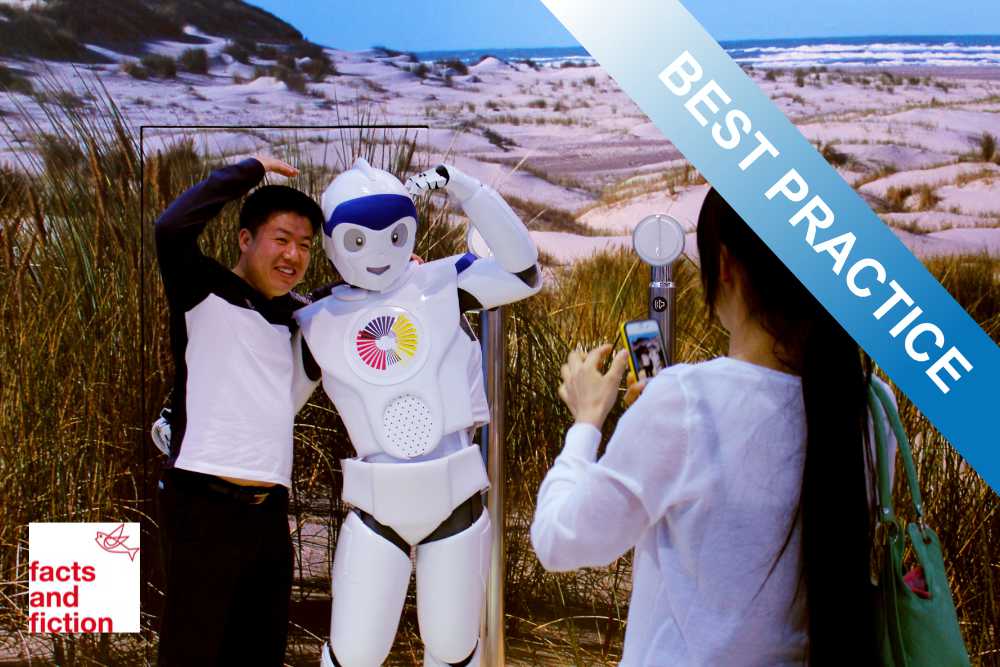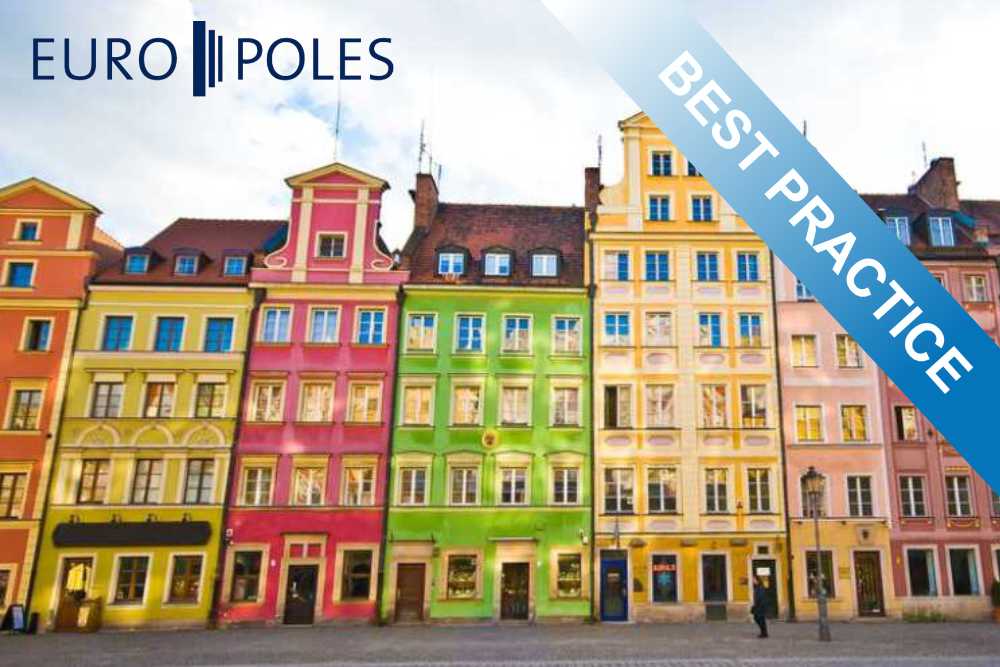
Expo 2012 “The Living Ocean and Coast”: ti communication supports the design of the German Pavilion
3. September 2012
Best Practice for intercultural competence: Germany, Austria and Switzerland—so close and yet so far!
27. January 2016Poland is our neighbor. This leads to the assumption that business collaboration between Germans and Poles always runs smoothly. In principle, this is true: As the economic figures of recent years show, German-Polish business is going well. Cooperation between the two countries is becoming closer and closer. However, there are a few things that should be considered right from the start.
Poland is our neighbor. This leads to the assumption that business collaboration between Germans and Poles always runs smoothly. In principle, this is true: As the economic figures of recent years show, German-Polish business is going well. Cooperation between the two countries is becoming closer and closer. However, there are a few things that should be considered right from the start.
In a “good business relationship,” Germans emphasize the word “business,” while Poles place at least as much importance on the word “relationship.” This means that Polish-German cooperation taking place primarily from a distance cannot really work well from a Polish point of view—because it is important to Poles to get to know the private person behind their function in an enterprise. A good personal relationship and the trust built upon it are the pillars of favorable collaboration. Not only does a good relationship make the work much more enjoyable, but the time invested in it can also be seen as an investment.
Intercultural awareness and reinforcement of cohesion
At the Europoles company, this situation was taken into account with a specially developed concept, which was first employed very successfully in the area of lighting. The goal was intercultural sensitization and the reinforcement of collaboration, including improved harmonization and coordination, between employees of the Konin plant (PL) and the plant in Neumarkt/Upper Palatinate (D). The team building efforts were conceived, organized and facilitated by ti communication senior experts for Poland Andrea Mewaldt and Katarzyna Anna Hübner in cooperation with Piotr Popiel.
The first step in the cultural sensitization process was a separate classic training course for the German and Polish groups in both plants. Subsequently, in an intensive evaluation, those work situations were identified which were perceived as running smoothly and those which were felt to be difficult from both the German and Polish perspectives. One resulting conclusion was that employees should get to know each other better and better understand functional assignments in a mutual, two-day workshop. The workshop was to focus on the common experience and enable common clarification processes on a team- and work level.
The European and bridge city of Görlitz/Zgorzelec was chosen as the location of the German-Polish team building measure. The workshop took place in various places on both sides of the Oder river. The positive atmosphere of the city, in which the German-Polish border is hardly of any importance anymore, was in and of itself a major contributor to the success of the program.
Intercultural team building: A successful example of German-Polish team development at the Europoles company
In a photo scavenger hunt with a variety of tasks, the historical center was explored by mixed German and Polish teams, investigating such questions as: “Why do the clocks in Görlitz run with such extreme precision?” Answer: Görlitz lies on the 15th meridian, which is decisive for Central European Time (CET). Or: “What are the ‘Görlitz Spirits’ (‘Görlitzer Geister’)?” Answer: the most famous soul from Görlitz is the pilgrim Agnete Finger (or Fingerin). She was the founder of the “Pious Foundation of Bread and Salt” (Fromme Stiftung von Brot und Salz) and together with her husband Georg Emmerich built the Görlitz Holy Sepulcher. Her spirit haunts the city because her relatives fought over her inheritance after her death. (Also, the “Görlitz Spirits” are a popular line of fruit liquors.) Language barriers were surmounted with more or less good foreign language skills, but also with “hands and feet.” And all groups came back, somewhat exhausted, but happy, with lots of mutual impressions. The winners of the scavenger hunt were celebrated with all participants in the evening at a medieval banquet in the vaults of the so-called “Barrel” (“Tonne”).
Cooperative work in the World Café and with DUNDU
Before, however, in the afternoon, it was “work before pleasure.” With the aid of the conference method World Café, topics from previous training course evaluations requiring a solution were taken up in discussion circles, examined together in more detail by the German and Polish colleagues, and on the second day of the workshop, concluded with an action plan. It was truly astounding how, even after the scavenger hunt, the level of trust had grown to open, honest talk, and how, after an evening of singing in “The Barrel,” the constructive and mutual search for solutions became a matter of course for all participants.
The second day of the workshop brought further highlights. First there was DUNDU, a rod puppet, that moves naturally and seems human when brought to life by five people in a team. In an obstacle course which had to be mastered with DUNDU, topics such as teamwork, coordination and leadership were experienced in a practical manner, then evaluated. In doing so, it became obvious that mixed German-Polish teams were best able to handle the various challenges. The workshop was concluded with another special group event. In keeping with the World Cup 2014, being held concurrently, it was decided to have a “living foosball table” tournament. The struggle to get the ball into the goal under difficult conditions was written on everyone’s face. But nobody will forget the two intensive days in Görlitz/Zgorzelec.
The rigidity prevailing at the first communal dinner on the evening of everyone’s arrival had vanished into thin air. All participants were extremely satisfied with the workshop and intend to further expand their positive collaboration. A suitable framework was created in which to implement the jointly developed measures, one of which provides for temporary job shadowing at each other’s respective site. This was also an idea that matured during the workshop.






